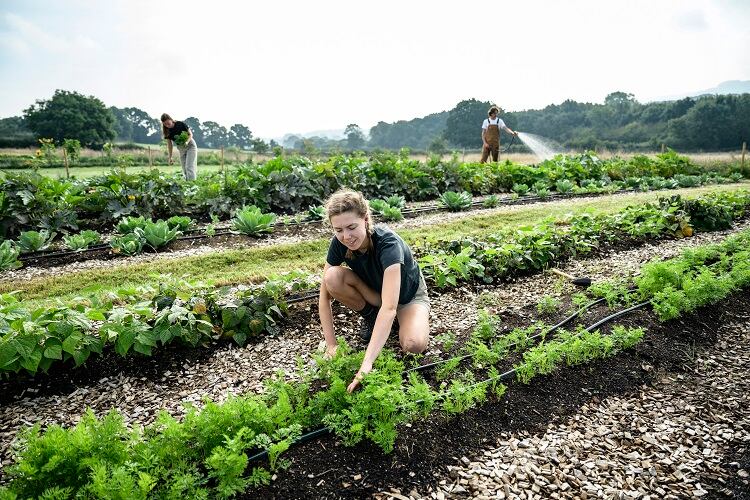“You cannot go after regenerative farming systems without changing fundamentally something in your business. Regenerative agriculture ... is going to require regenerative thinking. It's going to require a massive paradigm shift in the way we view capitalism and business to accomplish what it is that we're trying to accomplish. To take care of farmers and farming communities means that we have to sacrifice some of our margin.”
COP28 focuses on what’s needed to create a regenerative food system
At the COP28 event this week, Terry will present on regenerative business models, which will take a “rubber meets the road” approach to the topic, exploring the practices and the thinking that will be needed to create a more sustainable food system. At the start of the event, 130 prime ministers and presidents signed a commitment to reshape the food system to reduce greenhouse gas (GHG) emissions and protect farmers.
“Food is arguably one of the simplest ways to combat climate change. In the US ... 30% of our carbon emissions come from food. We're the second largest offender in food because we're a monocropping culture. We use mono-crops, we're stripping soil, [and] we're allowing all that carbon and methane into the air, and it's really causing a lot of damage.”
When it comes to shifting the US agriculture system to a more regenerative one, “it is a very expensive proposition, [and] ... the conversion of those farms is going to come down to cash now,” Terry said. However, CPG companies not only need to invest to make these changes in their supply chain, but they also need to anticipate the prices of raw materials will most likely go up, she added.
The entire industry also needs to prioritize farmers’ role in the food system and understand that they are “an intricate part of the system ... that if we don't take care of it, we will lose and our businesses will be gone,” Terry said.
“If we keep destroying the system, if we keep eroding [farmers’ livelihoods], you will have nothing to protect anymore. There will be nothing left, and we have to take that very seriously. So, the shift is not just throwing money at regenerative ag. The shift has to be around the paradigm of doing business.”
GoodSAM’s approach to regenerative agriculture
Launched in 2019, GoodSAM started with the idea of “[talking] to farmers about what could be intercropped there in order to start and create a year-round stream of incomes rather than maybe one income a year or two incomes a year,” Terry said. The company works directly with smallholder farmers in Colombia, Peru, Bolivia, Guiana, Kenya, and Northern California, cutting out brokers in the process, she added.
"We're not built on a top-line, bottom-line strategy. We were built upon how can we create a company that's profitable, that also serves the people who grow our food, and in turn then serves the planet, which we are desperately trying to save," Terry said. "Even in our desperation, we're not willing to give up a lot of different things... So, how do we figure out how to work with what we have and change parts of the system over time, and that's really what we've set out to do."
GoodSAM is also taking its regenerative approach to how it's expanding into retail with a major focus on Sprouts and Whole Foods, and last month, the company launched its non-GMO Project verified Brave Day Coffee at Sprouts nationwide, Terry said.
"We are so dedicated to those retailers because we really believe in the food system that they believe in that health should be accessible, and that health, ...wellness, and ethics should be at the forefront of all of our decisions in a grocery store."



